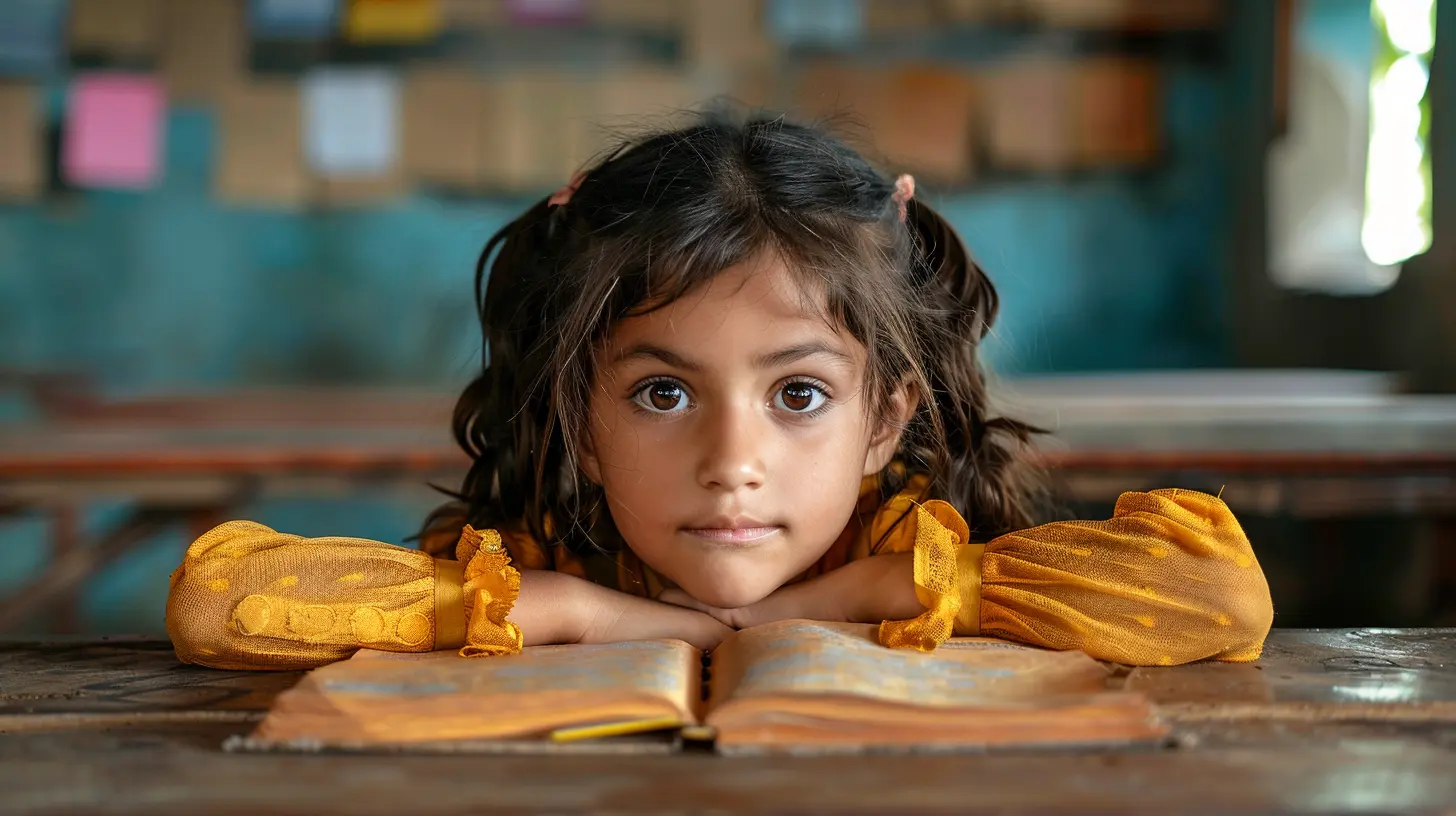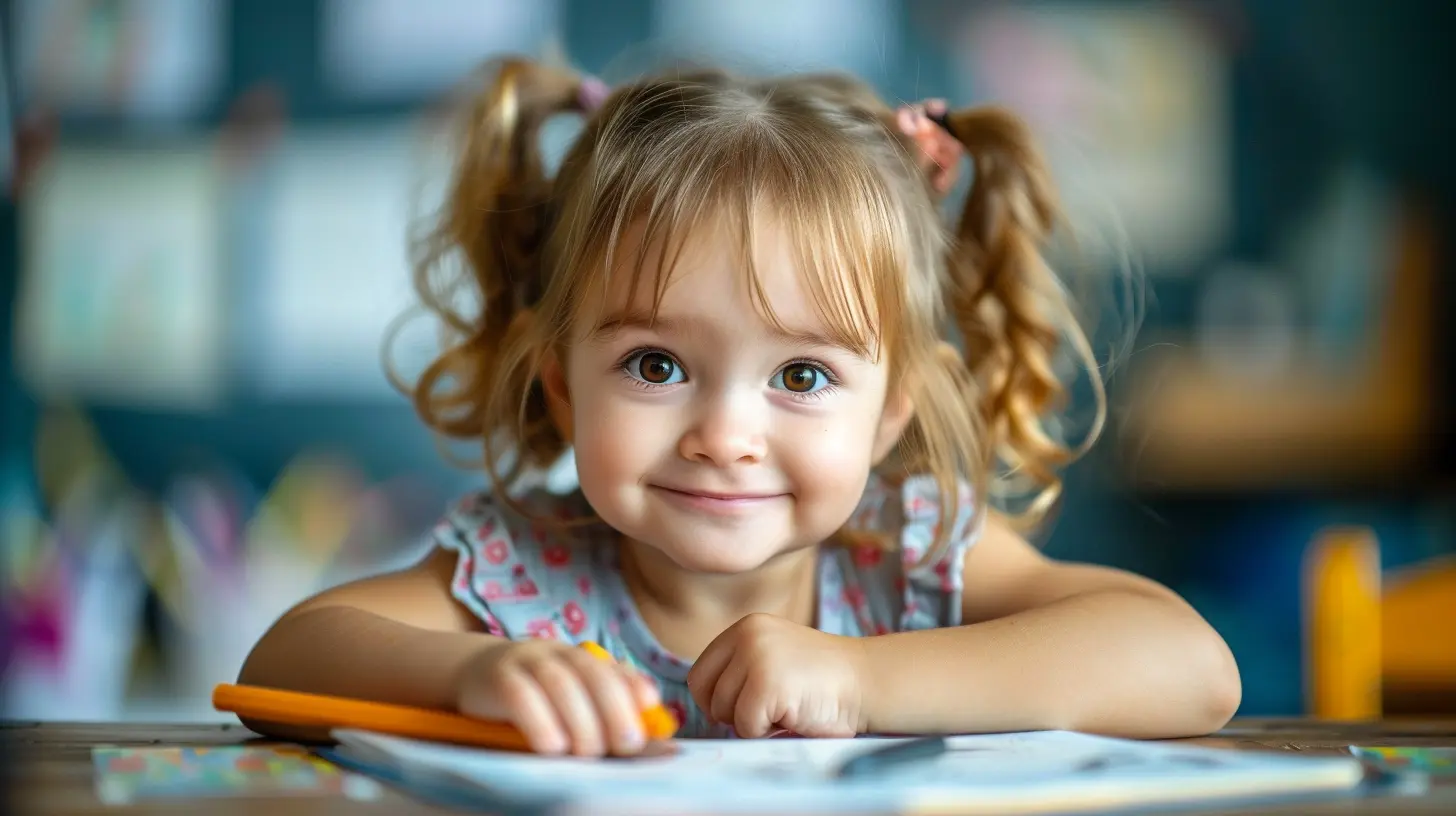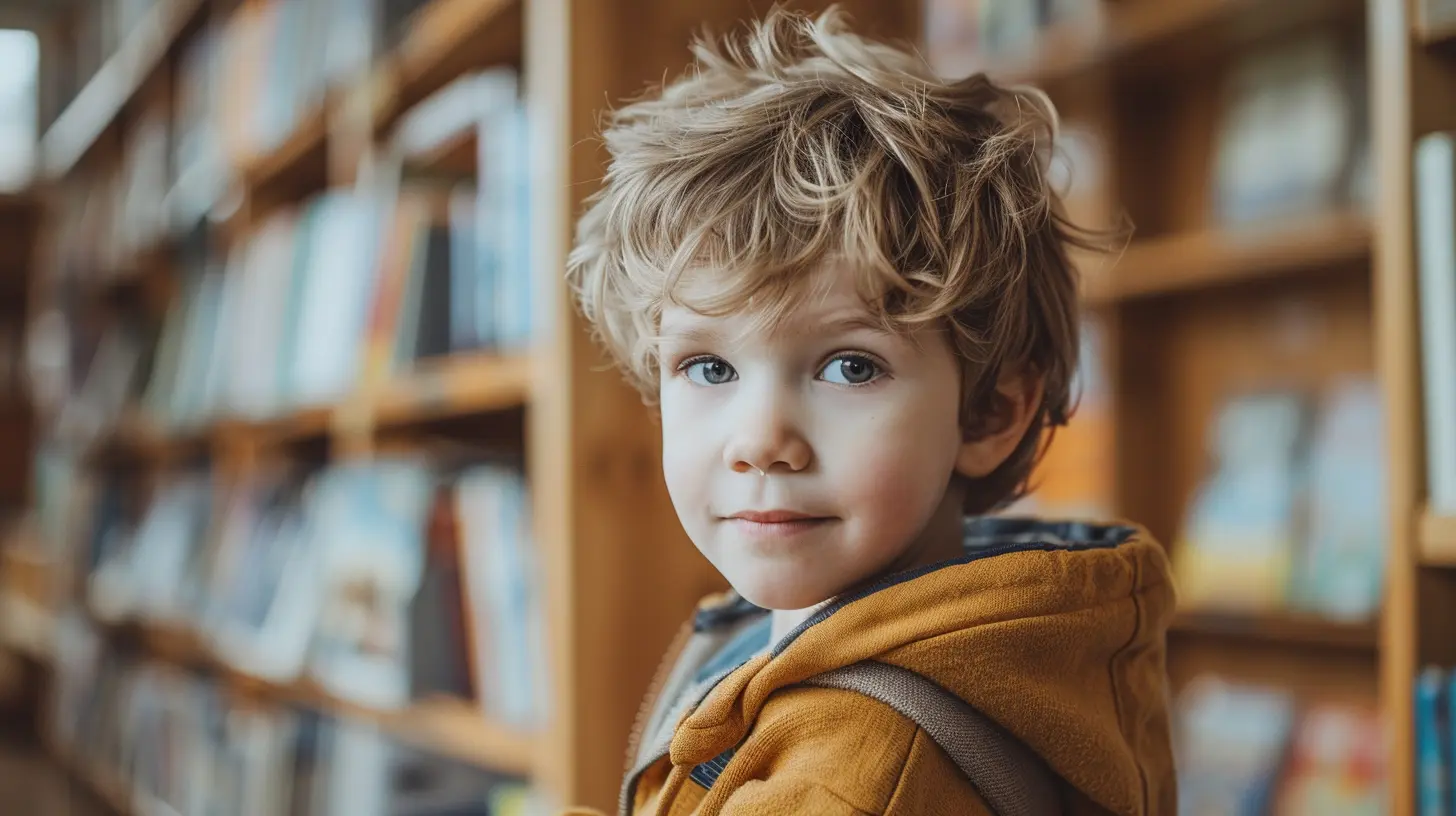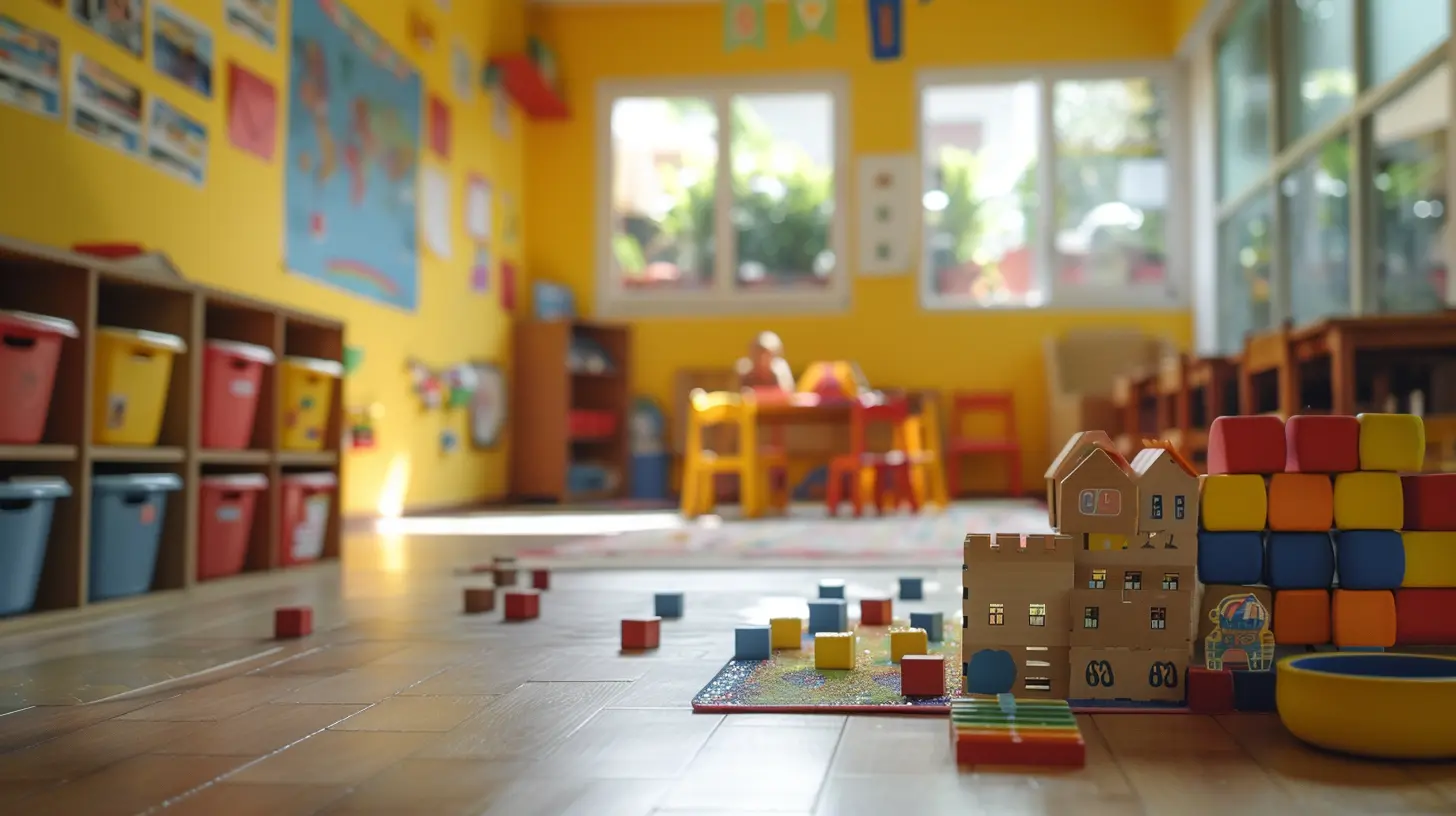Why Early Childhood Education is the Key to Lifelong Learning Success
28 December 2024
We’ve all heard the saying, “You’re never too old to learn,” right? While that's absolutely true, the foundation for this lifelong love of learning is often laid during early childhood. Think about it—those first few years of life are like the initial brushstrokes on a blank canvas. Get off to a strong start, and the picture you create is more likely to be vibrant and full of potential. Early childhood education is that first stroke, and it sets the stage for everything that comes after.
But why is early childhood education so critical? Well, here’s the thing: it's not just about teaching kids their ABCs or how to count to ten. It's about fostering a mindset of curiosity, resilience, and creativity that can last a lifetime. Let’s dive into why early childhood education is the key to lifelong learning success and how it can shape a brighter future for our children.

What is Early Childhood Education?
Before we get into the nitty-gritty of why early childhood education is so important, let’s clarify what it is. Early childhood education (ECE) generally refers to the period of learning that takes place from birth to around eight years old. This phase covers some of the most critical developmental milestones across cognitive, social, emotional, and physical domains.Whether it's a child playing with blocks, singing songs, or learning how to share with others, these activities are more than just "playtime." They are foundational experiences that shape the way a child learns, interacts with others, and understands the world. ECE takes place in a variety of settings—preschools, nurseries, kindergartens, and even at home. The goal is to create a stimulating environment that fosters growth across all areas of development.

The Brain’s Rapid Growth During Early Childhood
Did you know that by the age of five, a child's brain has already developed about 90% of its adult size? Yep, you read that right—90%! During these early years, the brain is like a sponge, soaking up information at an astonishing rate. This is why early childhood education is so crucial; it capitalizes on this period of rapid brain development.When children are exposed to rich learning experiences—whether through structured play, reading, or social interactions—their neural connections strengthen. These early experiences form the foundation for skills like problem-solving, critical thinking, and emotional regulation. In contrast, children who miss out on these enriching opportunities may struggle to catch up later in life.
It’s kind of like building a house. If the foundation is shaky, the entire structure is at risk. But if the foundation is strong, the house will stand tall and firm for years to come. That’s what early childhood education does—it builds a strong foundation for all future learning.

Early Childhood Education and Social-Emotional Skills
You know that feeling when you’ve just aced a project or handled a tricky social situation with grace? Confidence and emotional intelligence play huge roles in moments like these, and guess what? These skills are often nurtured in early childhood.Social-emotional skills are just as important as academic skills, if not more so. In fact, studies show that children who develop strong emotional and social skills in their early years are more likely to succeed in school and in life. Early childhood education helps young children learn how to interact with others, manage their emotions, and build healthy relationships.
Through activities like group play, storytelling, and guided discussions, children learn empathy, cooperation, and self-regulation. These "soft skills" become life-long assets, equipping them to navigate the complexities of adulthood. A child who learns how to share, take turns, and resolve conflicts on the playground is much more likely to carry those skills into the classroom, the workplace, and beyond.

Cognitive Development and Problem-Solving Skills
Let’s not forget about cognitive development. Those early years are when a child’s mind is most open to new ideas and ways of thinking. Early childhood education promotes the development of problem-solving skills, creativity, and critical thinking.Think about a child building a tower of blocks. They might start with a single block, carefully adding more, adjusting their strategy as the tower tips or wobbles. This is problem-solving in action! Through trial and error, they learn about balance, gravity, and even patience. They’re not just stacking blocks—they’re learning how to think critically and approach challenges with a solutions-oriented mindset.
This kind of hands-on, experiential learning is a cornerstone of early childhood education. Children learn best when they are actively engaged, and ECE creates an environment where they can explore, experiment, and discover the world around them.
Language and Communication Skills: A Critical Component
We all understand how essential communication is in our day-to-day lives. Whether it’s through speaking, writing, or even body language, effective communication is a skill that can make or break personal and professional relationships. And guess where this skill starts developing? You guessed it—early childhood.Early childhood education has a profound impact on a child’s language and communication skills. During these early years, children are like little sponges, absorbing words and phrases from adults, peers, and even media. ECE environments that encourage reading, storytelling, and verbal interaction help children build a rich vocabulary and strong communication skills.
In fact, research shows that children who are read to regularly and exposed to a language-rich environment from an early age tend to develop advanced literacy skills faster than their peers. By engaging in conversations, asking questions, and listening to stories, children develop the ability to express themselves clearly and confidently—an invaluable skill that serves them throughout their lives.
The Role of Play in Early Childhood Education
If there’s one thing kids love, it’s play. And here’s the best part—play is not just fun; it’s also incredibly educational! Early childhood education often incorporates play-based learning, which allows children to explore their interests, develop new skills, and learn about the world in an engaging and enjoyable way.Through play, children practice problem-solving, hone their motor skills, and learn how to interact with others. Whether they’re pretending to cook in a play kitchen, building a fort out of cushions, or working together to complete a puzzle, children are learning essential life skills while having fun.
According to child development experts, play-based learning helps children develop cognitive, social, and emotional skills in a way that feels natural and enjoyable. This kind of learning taps into a child's intrinsic motivation, making them more likely to stay curious and engaged in the learning process as they grow older.
The Long-Term Benefits of Early Childhood Education
Okay, so we’ve established that early childhood education is essential for brain development, social-emotional growth, and cognitive skills. But what about the long-term benefits? How does early childhood education influence a child's future success?Numerous studies show that children who participate in high-quality early childhood education programs are more likely to succeed academically, socially, and professionally. They are more likely to graduate from high school, pursue higher education, and secure stable employment.
But the benefits don’t stop there. Early childhood education has also been linked to better health outcomes, lower rates of incarceration, and even higher earning potential in adulthood. In short, investing in early childhood education pays off big time—not just for the individual child, but for society as a whole.
Early Childhood Education: A Lifelong Investment
So, why is early childhood education the key to lifelong learning success? In a nutshell, it provides children with the skills, mindset, and tools they need to thrive in school and in life. By nurturing a child’s natural curiosity, fostering social-emotional development, and promoting cognitive growth, ECE lays the foundation for future academic and personal success.It’s not just about preparing children for school; it’s about preparing them for life. The benefits of early childhood education extend far beyond the classroom. Children who receive high-quality ECE are more likely to become confident, resilient, and capable adults who are ready to take on the challenges of the world.
In a way, early childhood education is like planting a tree. You nurture the sapling, providing it with the sunlight, water, and nutrients it needs to grow. Over time, that sapling turns into a strong, towering tree with deep roots and branches that stretch toward the sky. The same is true for children. Invest in their early years, and you’ll set them on a path to lifelong learning and success.
all images in this post were generated using AI tools
Category:
Early Childhood EducationAuthor:

Madeleine Newton
Discussion
rate this article
18 comments
Danica Rios
This article brilliantly highlights the critical role of early childhood education in shaping future learning pathways. By fostering curiosity and foundational skills at a young age, we empower children to become lifelong learners. Investing in early education is truly an investment in a brighter future for all.
March 21, 2025 at 9:39 PM

Madeleine Newton
Thank you for your insightful comment! I completely agree—early childhood education lays the groundwork for lifelong learning and personal development. Investing in it is indeed crucial for a brighter future.
Brick Morgan
Great article! Early childhood education truly lays the foundation for future success. Investing in these formative years fosters critical thinking and social skills, essential for a lifelong love of learning.
February 2, 2025 at 3:26 AM

Madeleine Newton
Thank you for your thoughtful comment! I completely agree—early childhood education is crucial for nurturing essential skills that support lifelong learning.
Simone McGrady
Investing in early education unlocks potential for a brighter, lifelong learning journey!
January 29, 2025 at 8:53 PM

Madeleine Newton
Absolutely! Early education lays the foundation for lifelong learning by fostering curiosity, critical thinking, and social skills essential for future success.
Isla Matthews
Early childhood education isn’t just important; it’s non-negotiable. Think of it as giving kids a VIP pass to the world of knowledge. Without it, they’re stuck in the waiting room! Invest in their early years, and watch them thrive like the superstars they were meant to be!
January 25, 2025 at 4:25 AM

Madeleine Newton
Absolutely! Early childhood education lays the foundation for lifelong learning, equipping children with essential skills and confidence to succeed. Investing in these early years truly unlocks their potential!
Darius Hubbard
This article beautifully highlights the critical role early childhood education plays in shaping lifelong learning. Investing in our youngest learners lays a strong foundation for their future success. Every moment spent nurturing their curiosity and skills is a step towards brighter futures. Let's champion early education together—it's truly invaluable!
January 19, 2025 at 9:02 PM

Madeleine Newton
Thank you for your supportive comment! I completely agree—investing in early childhood education creates a powerful foundation for lifelong learning and success. Let's continue to advocate for our youngest learners!
Fleur McCoy
Early childhood education isn’t just beneficial; it’s essential. Investing in our youngest learners lays a powerful foundation for lifelong success. Let’s prioritize early education and empower future generations, unapologetically!
January 13, 2025 at 7:45 PM

Madeleine Newton
Thank you for your insightful comment! I completely agree—investing in early childhood education is crucial for building a strong foundation for our future leaders. Let’s continue to advocate for its importance!
Orionyx Simmons
Early childhood education lays a strong foundation for future learning.
January 8, 2025 at 9:34 PM

Madeleine Newton
Absolutely! Early childhood education is crucial as it fosters essential cognitive, social, and emotional skills that support lifelong learning and success.
Tala McDaniel
Great article! Emphasizing early childhood education not only fosters foundational skills but also nurtures a love for learning. Investing in these years truly shapes future academic and personal successes.
January 3, 2025 at 5:29 AM

Madeleine Newton
Thank you! I appreciate your thoughtful insights on the importance of early childhood education in shaping future success.
Morrow McCoy
This article effectively highlights the crucial role early childhood education plays in shaping future learning experiences. Investing in quality early education lays a strong foundation for lifelong success.
January 2, 2025 at 12:58 PM

Madeleine Newton
Thank you for your insightful comment! I'm glad you found the article impactful in emphasizing the importance of early childhood education for future success.
Rachael Fletcher
Early childhood education lays a strong foundation for lifelong learning, fostering critical thinking and social skills essential for personal and academic success.
January 2, 2025 at 5:08 AM

Madeleine Newton
Thank you for highlighting the importance of early childhood education! It's crucial for developing essential skills that support lifelong learning and success.
Carrie McMurtry
Early childhood education: because teaching kids to read before they can run away is a genius move! Let’s set them on the path to lifelong learning—one finger paint masterpiece at a time!
January 1, 2025 at 5:49 AM

Madeleine Newton
Absolutely! Early childhood education fosters a love for learning and creativity, laying a strong foundation for future success.
Raina McMillan
Thank you for this insightful article! It beautifully highlights the crucial role early childhood education plays in shaping lifelong learning. Investing in young learners not only fosters essential skills but also sets a strong foundation for their future success. Great read!
December 31, 2024 at 3:42 AM

Madeleine Newton
Thank you for your kind words! I'm glad you found the article insightful and valuable. Investing in early childhood education truly is vital for lifelong success.
Marlowe Kane
Early childhood education lays the foundation for a lifetime of curiosity and resilience. Investing in our youngest learners empowers them to thrive, adapt, and excel in an ever-changing world. Let's champion their future!
December 30, 2024 at 12:41 PM

Madeleine Newton
Absolutely! Early childhood education is crucial for nurturing curiosity and resilience, ensuring our youngest learners are well-equipped to navigate and excel in life’s challenges. Let's prioritize their future!
Jessica McGowan
Empowering young minds today shapes brighter futures tomorrow!
December 30, 2024 at 3:35 AM

Madeleine Newton
Absolutely! Investing in early childhood education lays the foundation for lifelong learning and success.
Aubrey Curry
Investing in early childhood education shapes a brighter future, nurturing curiosity and resilience that benefit children throughout their lives. Truly vital!
December 29, 2024 at 8:21 PM

Madeleine Newton
Thank you! I completely agree—early childhood education lays the foundation for lifelong learning and personal growth.
Amos McPhail
“Foundations laid early shape future learning journeys.”
December 29, 2024 at 3:54 AM

Madeleine Newton
Absolutely! Early foundations in education set the stage for ongoing learning, fostering curiosity and critical skills that last a lifetime.
Raine Franklin
This article piques my curiosity! What specific skills or habits developed in early childhood education contribute most significantly to lifelong learning? I'm eager to explore how foundational experiences shape our ability to adapt and thrive in an ever-evolving world. Insights, please!
December 28, 2024 at 7:41 PM

Madeleine Newton
Thank you for your interest! Key skills developed in early childhood education include critical thinking, adaptability, social-emotional skills, and a love for learning. These foundational experiences foster resilience and curiosity, essential for thriving in a changing world.
Monica McNeely
This article beautifully highlights the vital role early childhood education plays in shaping future learners. Investing in these formative years not only nurtures curiosity and creativity but also lays a strong foundation for lifelong success. Every moment spent on early learning is an investment in brighter futures!
December 28, 2024 at 12:07 PM

Madeleine Newton
Thank you for your insightful comment! I completely agree—investing in early childhood education truly sets the stage for lifelong learning and success.
MORE POSTS

How to Balance Part-Time Jobs and Academic Responsibilities

Navigating the World of Online Degrees: What You Should Know

Cultivating Patience and Persistence for Long-Term Skill Mastery

Developing Cross-Cultural Communication Skills for a Globalized World

How to Get the Most Out of Peer Review in Distance Learning

Engaging Ways to Teach Digital Citizenship

Applying Action Research to Improve Classroom Instruction

The Flexibility of Distance Education: A New Era for Adult Learners

Building Confidence in the Classroom

How Educational Research Can Help Combat Learning Loss

How to Use Peer Feedback to Improve Student Writing Skills